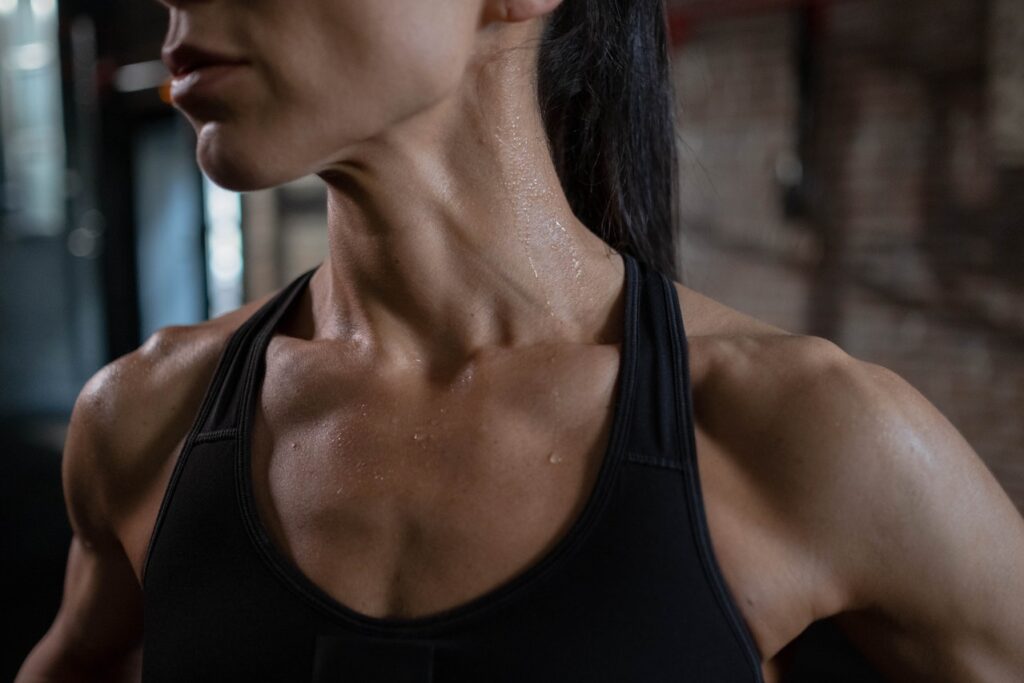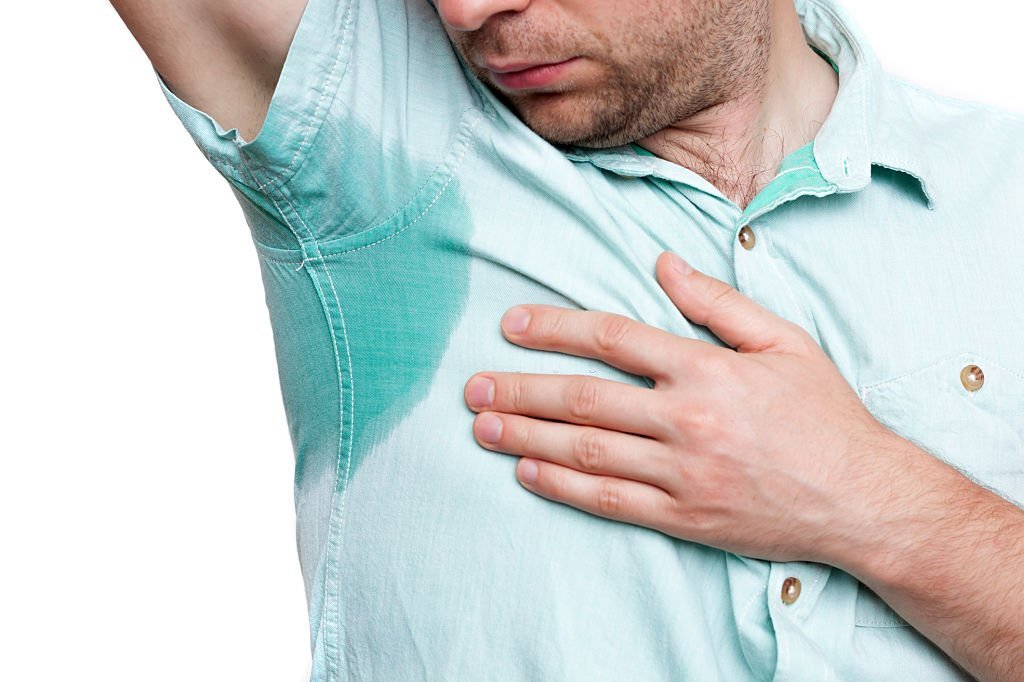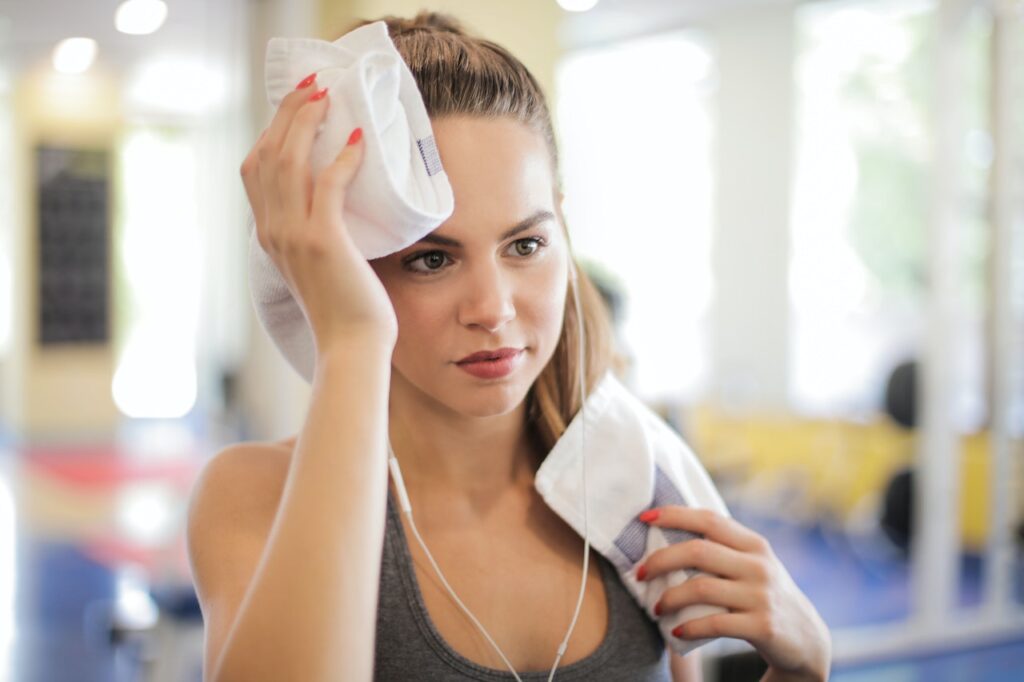Creatine is sure to make your body bigger and more muscular if you follow the proper dose and exercise. Creatine gives you energy and endurance to build a good muscle profile through an extensive and intense workout. And that can make you sweat more!
What – does creatine make you sweat?
Well, creatine can make you sweat. Due to water retention, you may notice dehydration symptoms such as thirst, heavy sweating, dry skin, dry mouth, etc. However, sweating more isn’t a problem. That’ll make you lose extra water weight faster.
You can think of sweating as both good and bad situation-wise. Throughout my article, there are some factors that I am going to elaborate on about Creatine and Sweating.
Understanding Creatine And Its Work
To understand Creatine causing sweat, you have to understand what Creatine does to your body.
When you start taking Creatine, it creates a “quick burst” of energy and increased strength. That improves performance. And how does Creatine do that?
The primary role of Creatine is to increase the phosphocreatine stores in your muscles. That provides additional stores of ATP, the key energy source for high-intensity exercise.
Creatine also boosts muscle growth by increasing workload, improving cell signaling, raising anabolic hormones, and increasing cell hydration. It can reduce protein breakdown and lower myostatin levels, inhibiting muscle growth.
Overall, creatine is a beneficial supplement for those seeking muscle gain and improving their athletic performance. It is effective for both short- and long-term muscle growth. It benefits various populations, including sedentary individuals, older adults, and elite athletes.
A study conducted for 4 months with older adults doing a weight training program on Creatine significantly increased leg strength and muscle mass. It is indeed one of the greatest supplements for the best muscle profile.

Does Creatine Make You Sweat?
Creatine directly doesn’t cause sweat; it mainly occurs from water retention. Creatine sweat is not something serious and is pretty common.
Creatine adds water weight to your muscle to make them look bigger. That is because Creatine draws water into your muscle cells. Your muscles will hold onto this water, resulting in puffiness around your arms, legs, or stomach.
Next, you get amazing energy burst in your muscles, which drives you to go for more workouts. The more you do it, the more water weight you lose. Your body is full of muscle groups, and you get to lose all those water weights from every single of them.
It is when you get to sweat like hell. The more Creatine retains fluid in your muscle, the more you sweat.
Creatine can increase the metabolic rate of subcutaneous and brown adipose tissue by stimulating mitochondrial ATP turnover in fat tissue. Creatine synthesis plays a major role in amino acid and nitrogen metabolism, particularly in the metabolism of arginine and methionine.
So you will burn more calories at rest and during activity, and as a sign of a higher metabolism rate, you will get increased breathing and frequent sweating.
Discover if creatine has calories.
Other Factors That Affect Sweating
Along with Creatine’s metabolism rate-increasing characteristics, some factors can trigger sweating.
First of all, the kind of exercises you are doing. If you are more into HIT exercises, you’ll sweat more. These exercises are designed to make every part of your body move. Otherwise, exercise like a few sets of cable pulling or doing some weighted curls won’t make you sweat that much.
However, where you are doing exercises can make significant differences. For example, flexing those muscles at Muscle Beach will make you more likely to sweat. Again, if your gym has no air cooler facility, believe me, you’ll sweat more.
That takes us to the climate and environment around us. It can have a big impact on how much you sweat. If it’s very hot outside, your body will produce more sweat to cool down.
If you’re in a humid environment, the sweat on your skin may not evaporate as quickly, making it harder for your body to cool down. Additionally, certain types of clothing can impact how much you sweat. If you’re wearing tight or non-breathable clothing, it can make you sweat more.
How to Minimize Excessive Sweating During Exercise
When we exercise, sweating is a natural process that helps regulate our body temperature. You can manage excessive sweating effectively. However, if you experience too much or too little sweating, you can take measures to reduce it.
Choose Lightweight cloth: You might get encouraged by the big guys curling those heavy weights in top-to-bottom hoodies. Believe me, that takes a lot of practice and more endurance. So try to wear clothes that can allow your body to breathe properly and cool down your body.
Keep Yourself Hydrated: Staying hydrated during exercise can help minimize excessive sweating. When dehydrated, your body can’t produce enough sweat to cool you down, leading to overheating and excessive sweating. Rehydrating can help you reduce excessive sweating.
Learn if creatine can cause dehydration.

Skip Spicy Food Before Exercise: Spicy foods contain capsaicin, which can increase your body temperature and heart rate. Skipping spicy foods before exercise can help minimize excessive sweating. Opting for milder foods can also help reduce sweating during exercise.
Apply Deodorants: Deodorants go down into the sweat duct and clog it. That prevents you from sweating a lot. But remember to use it before sleeping. If you use it in the morning, it will wash away when your sweat volume is typically higher.
FAQs
Does creatine make your body warmer?
Creatine loading resulted in increased body mass compared with any other supplements. Although the exercise bout resulted in increased core temperature, loss of body water, and a change in plasma volume. These measures were not significantly different from other supplements,
Conclusion
Due to some serious health condition, I was away from intense exercise for about one year. And I put on some extra weight at that time. I started slowly, and eventually, I started taking Creatine all over again.

I am a health and wellness enthusiast working in a Pittsburgh-based wellness clinic. My primary role as a consultant is to tailor a balanced lifestyle for my patients, where positive steps and potent supplements play a synergistic role.


